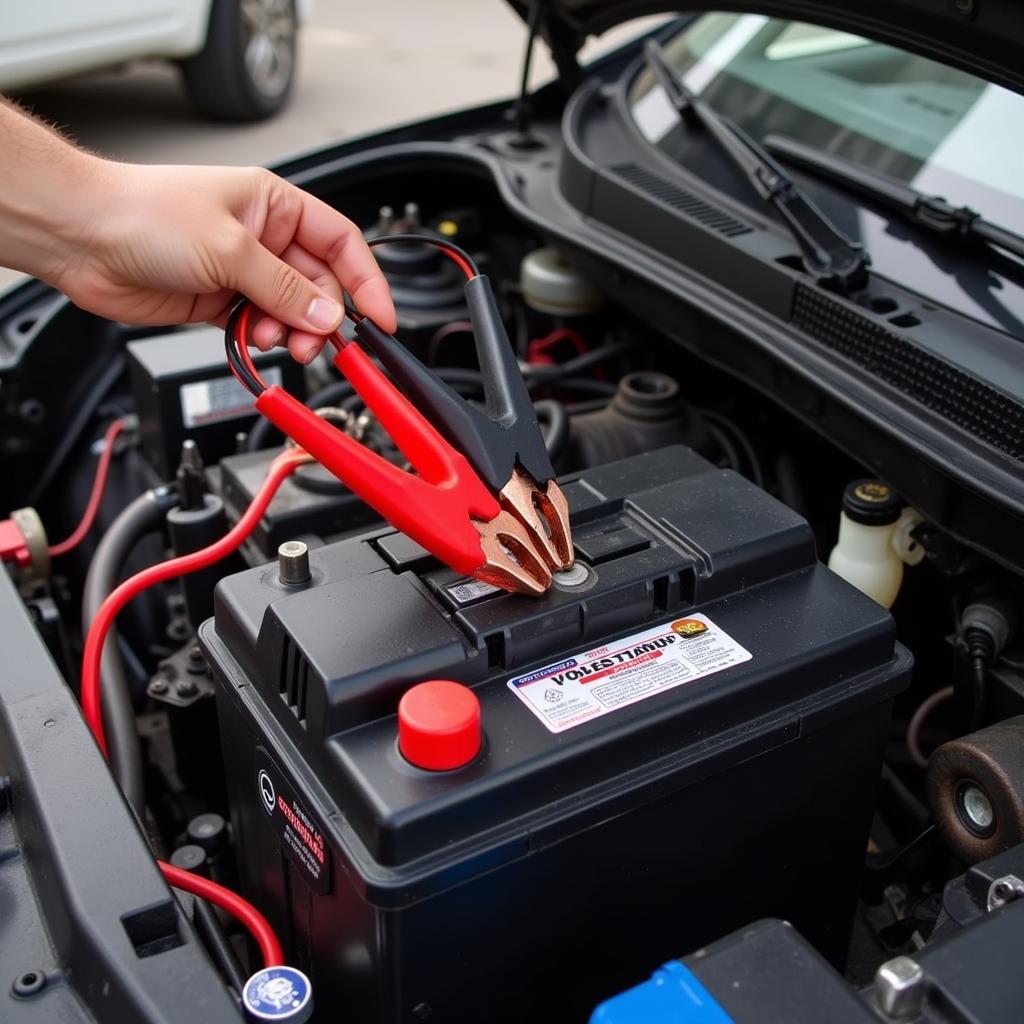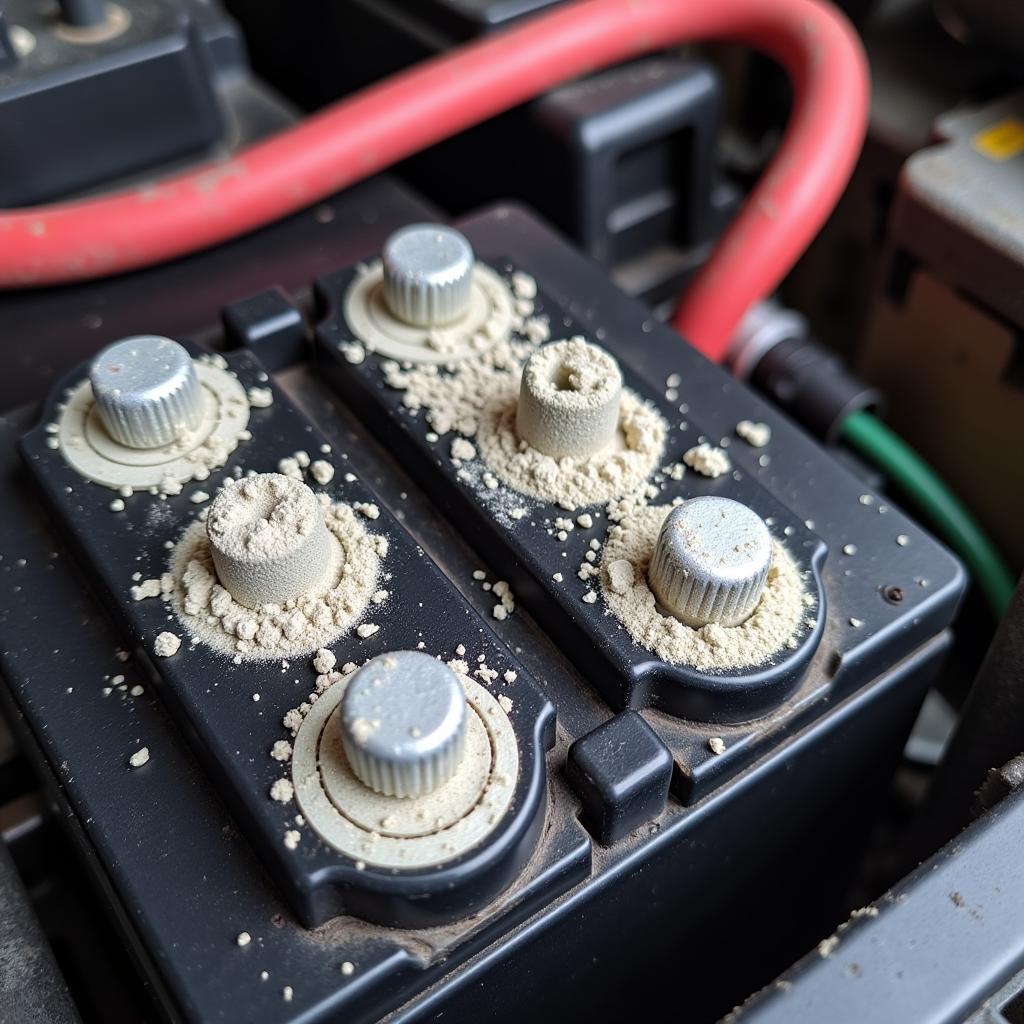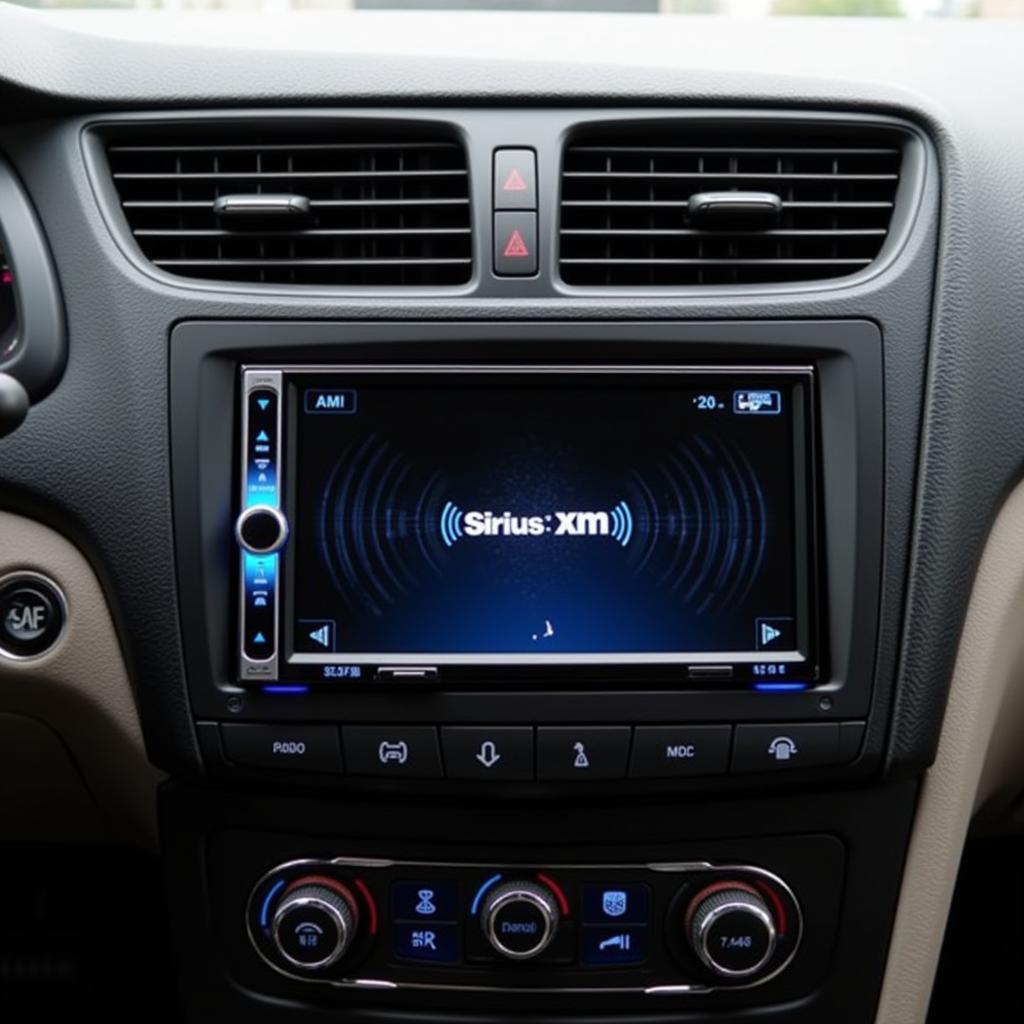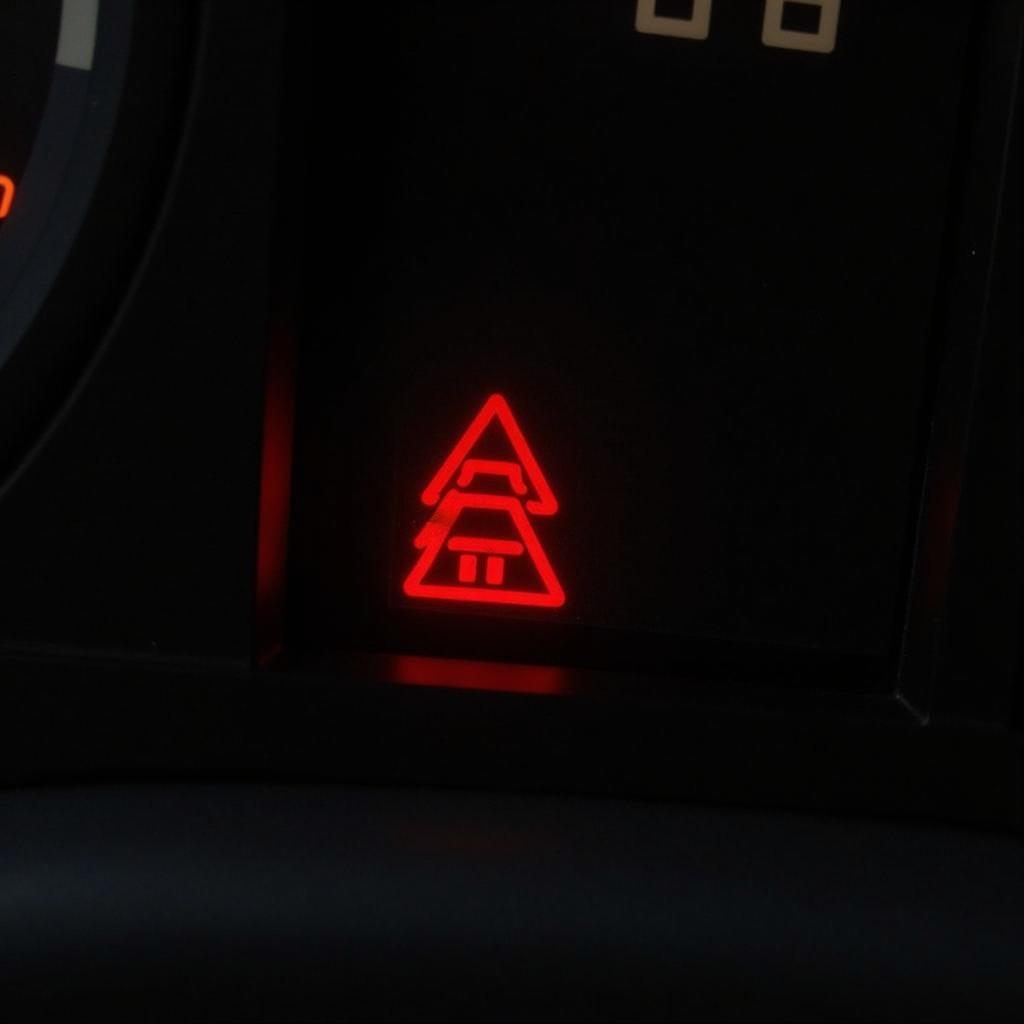A dead car battery is a frustrating experience, leaving you stranded and wondering what went wrong. Understanding the causes for car battery to die can help you prevent future issues and keep your vehicle running smoothly. This article will delve into the common reasons behind a dead battery, from simple oversights to more complex electrical problems. Let’s jump right in!
 Car Battery Jump Start with Jumper Cables
Car Battery Jump Start with Jumper Cables
Common Culprits Behind a Dead Car Battery
Several factors can contribute to a car battery dying. Some of the most common include:
- Leaving lights on: One of the most frequent causes for car battery to die is accidentally leaving headlights, interior lights, or even parking lights on overnight. These drain the battery’s power, leaving it unable to start the engine.
- Extreme temperatures: Both extreme heat and extreme cold can significantly impact battery performance. Heat can evaporate battery fluid, while cold can slow down the chemical reactions necessary for power generation.
- Old age: Like any other component, car batteries have a limited lifespan, typically around 3-5 years. As a battery ages, its ability to hold a charge diminishes, eventually leading to failure.
- Short trips: Continuously driving short distances without giving the battery enough time to recharge can also lead to a dead battery. The alternator, responsible for recharging the battery, needs sufficient run time to replenish the power used for starting the engine.
- Parasitic drain: Even when the car is off, certain electrical components can continue to draw power, slowly draining the battery. This is known as parasitic drain and can be caused by faulty wiring, malfunctioning components, or aftermarket accessories.
 Corroded Car Battery Terminals
Corroded Car Battery Terminals
If your car battery died while driving, this could indicate a more serious problem with the charging system, such as a faulty alternator. Similarly, if your lights flickering in car won t start, this could signal a failing battery or alternator issue.
Diagnosing and Fixing a Dead Car Battery
Identifying the root cause is the first step towards fixing a dead car battery. Here’s a breakdown of common diagnostic steps:
- Visual inspection: Check the battery terminals for corrosion. Corrosion can disrupt the connection between the battery and the car’s electrical system.
- Jump start: Attempt to jump-start the car. If the car starts, it indicates a discharged battery. However, if it doesn’t start or dies shortly after, there might be a problem with the alternator or another component.
- Battery testing: Use a multimeter or a battery tester to check the battery’s voltage. This will help determine the battery’s state of charge and its overall health.
- Alternator testing: If the battery tests fine, the next step is to check the alternator. A faulty alternator won’t recharge the battery, leading to repeated dead battery situations.
“A simple voltage test can save you a lot of hassle,” says John Miller, a certified automotive technician with over 20 years of experience. “It’s the quickest way to rule out a dead battery and focus on other potential issues.”
If your key fob wont work, it might not be directly related to a dead car battery but can be an additional symptom of a drained battery or electrical issues. It’s always best to have a professional diagnose the problem if you’re unsure.
Preventing Future Battery Problems
A few simple preventative measures can extend the life of your car battery and avoid future headaches:
- Regularly clean the battery terminals: Remove any corrosion with a baking soda and water solution.
- Avoid short trips: If possible, combine short trips into longer ones to allow the alternator to fully recharge the battery.
- Turn off all lights and accessories: Double-check that all lights and accessories are off before leaving your vehicle.
- Have the battery tested periodically: A professional can assess the battery’s health and identify potential problems before they lead to a breakdown.
“Prevention is key when it comes to car batteries,” advises Maria Sanchez, an electrical engineer specializing in automotive systems. “Regular maintenance can significantly extend the lifespan of your battery and save you from unexpected breakdowns.”
If you experience that your car battery turns off while driving or if your car battery totally drained, it is crucial to seek professional help immediately. These are signs of severe electrical problems that require expert attention.
Conclusion
Understanding the causes for car battery to die empowers you to take preventative measures and address issues effectively. From simple habits like turning off lights to recognizing the signs of a failing alternator, a little knowledge can go a long way in keeping your car running smoothly. By following the tips and advice outlined in this article, you can minimize the risk of facing a dead battery situation and ensure a reliable driving experience.


